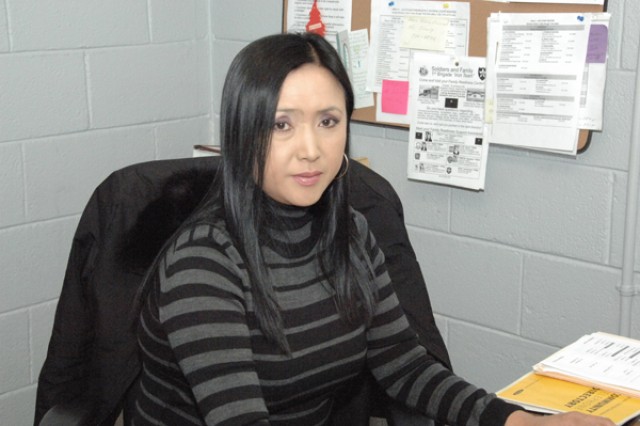CASEY GARRISON South Korea - In the course of human events as they happen in Army garrison life, Soldiers frequently marry third-country nationals as well as host-country nationals, without thought or planning for their status in regard to immigration or citizenship post nuptials. Sometimes this absence of planning leads to Soldiers changing stations without being able to take their new spouses and dependents, which results in the new spouse being left behind with no support.
For this reason, Army Community Services operates an Outreach Program, which provides services covering all the needs Soldiers, Civilians, and Family members might have regarding marriage, visa issues, citizenship and immigration. The program's most far reaching aspect is helping spouses and Family members left behind when a Soldier or Civilian changes station.
The program has established an Abandoned Spouse Hotline to connect with those finding themselves in such situations.
"One of the most important Army Family Action Plan issues surfacing during the AFAP conference last year was about left-behind Spouses," said Elizabeth Samarripa, Red Cloud garrison Outreach Program coordinator. "This is the reason we established the hotline last January. Our system allows us to help anyone with a Department of Defense identification card."
We have had cases where persons who have had a relationship with American Soldiers or Civilians and have found themselves in an abandoned situation, with and without children, have been helped through the Outreach Program.
"I can lead persons who find themselves left behind by Soldiers or Civilians outside of marriage to help outside of the Army system," Samarripa said.
"When I find out their needs, I lead them to My Sister's Place, which deals with foreign national displaced females, and other Korean social work organizations that deal with these situations."
When spouses find themselves abandoned by their Soldier spouse and walk in ACS or calls in on the hotline, Samarripa will ask them their needs to find where to start solving their situation.
"I have to assess their needs first," Samarripa said.
"Sometimes they need financial assistance, so I have to find which need to fill first before addressing the others. If there is no contact with the Soldier; they leave the spouse here without any further contact, we track them through their last unit."
Once contact is made with the Soldier, Samarripa will let the Soldier know his spouse is left behind and he needs to communicate his plans for her.
If there is no answer from the Soldier, Samarripa will try to find him through the chain of command and let command handle it from there.
The majority of spouses left behind in Korea result from a situation, which happens often.
A Soldier will marry a third country national without plans to get the required visa so she may follow him to the United States or where ever he may be stationed, Samarripa explained.
"At least 90 percent of our cases are made when the Soldier fails to process the immigrant visa on time," Samarripa said. "When it comes time for him to PCS, she is left behind. Soldiers must be aware when they marry anyone outside the United States their responsibility is to begin processing their immigration visa right away, as soon as their marriage is complete."
Depending on the situation, the processing time can take from a few months to as long as a year, Samarripa said.
Soldiers sometimes have the idea that once a spouse has her ID card, she can travel with him. They should realize their spouse will need a special visa from the U.S. Embassy so she can immigrate and obtain a green card.
"We have referrals from the Judge Advocate General's office telling Soldiers to get in touch with us to find out what they must do to get a visa for their wives," Samarripa said. "They cannot begin the process before they get married, so they must get all the required paper work ready after their marriage so they may begin the visa application process."
For Korean spouses the process is easier because they have an easier time getting their required paper work together, being in Korea.
For third-country spouses, they will have to travel to their home country to gather the required paper work and come back to Korea to apply. In such cases, Samarripa and the staff of the Outreach Program can help with information regarding what kinds of certificates and reports are needed for the visa application. In every case, it is best to come to the ACS offices and get all the information needed to begin visa application process before getting married in order to be prepared, Samarripa said.


Social Sharing